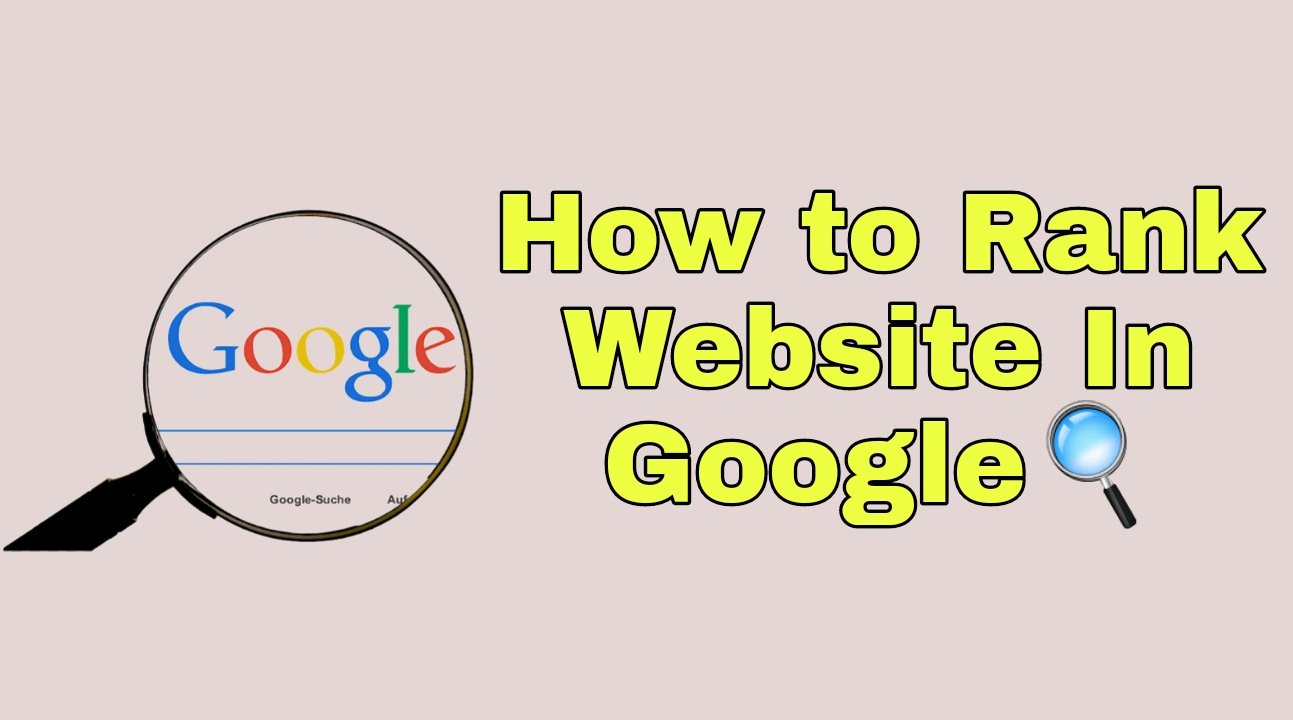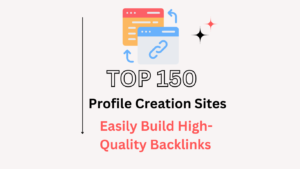Unlocking Success: How to Rank Your Website in Google’s Search Results

Picture this: You’ve put in countless hours of hard work into building an exceptional website, but it feels like a hidden gem in the vast digital landscape. Your masterpiece deserves recognition, and that’s where Google comes in. The journey to Google’s top search results might seem daunting, but fear not! In this guide, we’ll delve into actionable strategies and insights on how to rank your website in Google and amplify your online influence.
 Welcome to the world of search engine optimization (SEO), where the rules of the game are ever-evolving. Securing a prime spot on Google’s search results is akin to claiming a golden ticket to online success. From understanding the fundamentals of SEO to mastering advanced techniques, we’re here to demystify the process and empower you with the tools to ascend the ranks. So, let’s embark on this enlightening journey to unravel the secrets of effective website ranking.
Welcome to the world of search engine optimization (SEO), where the rules of the game are ever-evolving. Securing a prime spot on Google’s search results is akin to claiming a golden ticket to online success. From understanding the fundamentals of SEO to mastering advanced techniques, we’re here to demystify the process and empower you with the tools to ascend the ranks. So, let’s embark on this enlightening journey to unravel the secrets of effective website ranking.
How to Rank Your Website in Google: Unveiling the Strategies
1. Leveraging High-Quality Content Creation

In the realm of SEO, content is undoubtedly king. Crafting compelling, relevant, and informative content not only captivates your audience but also appeases Google’s search algorithms. Aim to create content that answers your target audience’s queries comprehensively. Don’t shy away from incorporating the focus keyword “how to rank website in Google” naturally within your content. Striking a balance between keyword integration and readability is key.
2. Conducting Thorough Keyword Research

Keywords are the foundation of SEO. Start by conducting meticulous keyword research, identifying terms and phrases your audience is likely to search for. Utilize tools like Google Keyword Planner and SEMrush to unearth valuable insights. Sprinkle relevant LSI keywords throughout your content to broaden your reach and enhance semantic relevance.
3. Technical Optimization: A Prerequisite for Success
Behind every successful website is a robust technical infrastructure. Ensure your website is optimized for mobile devices, as Google prioritizes mobile-friendly sites. Speed up loading times by compressing images and minimizing code. Implementing schema markup enhances the visibility of your content in search results, providing users with additional context.
4. Secure High-Quality Backlinks

Backlinks serve as endorsements for your website’s credibility. Cultivate relationships with authoritative websites in your niche and strive for backlinks from reputable sources. When reputable websites link to yours, Google recognizes your site as a valuable resource, consequently boosting your ranking potential.
A seamless user experience is paramount. Ensure intuitive navigation, captivating visuals, and easy-to-access information. Google’s algorithms consider user engagement metrics such as bounce rates and dwell time. Engage your audience with interactive elements, compelling visuals, and a user-friendly layout.
6. Harnessing the Power of Social Signals
Social media isn’t just about likes and shares – it can significantly impact your website’s visibility. Cultivate an active social media presence to amplify your content’s reach. Engage with your audience, encourage shares, and foster a community around your brand. Social signals indicate your content’s relevance and popularity, influencing your Google ranking.
7. Embracing Video Content: A Visual Odyssey
Videos have emerged as a potent tool for engaging audiences. Craft captivating video content that educates, entertains, or solves problems for your viewers. Whether through tutorials, interviews, or storytelling, videos offer a dynamic medium to showcase your expertise. Embed videos on your website and optimize them with relevant metadata for enhanced visibility.
8. The Role of User Intent in SEO
Understanding user intent is pivotal. Tailor your content to align with different stages of the buyer’s journey – informational, navigational, and transactional. Anticipating user queries and addressing them effectively positions your website as a valuable resource, increasing the likelihood of ranking higher in Google’s search results.
9. Mobile-First Indexing: A Paradigm Shift

Google’s mobile-first indexing means that your website’s mobile version takes precedence in search ranking decisions. Prioritize responsive design and ensure consistent content across devices. Test your website’s mobile-friendliness using Google’s Mobile-Friendly Test tool to secure your foothold in the mobile-centric landscape.
10. Earning Featured Snippets: A Shortcut to Prominence
Featured snippets, often referred to as “position zero,” offer prime real estate in search results. Craft concise, well-structured content that directly answers common queries related to your niche. Pose questions related to “how to rank website in Google,” then immediately provide comprehensive answers. This approach increases your chances of snatching the coveted featured snippet spot.
FAQs About Ranking Your Website in Google
Can I achieve a high Google ranking overnight?
Achieving a high Google ranking requires time, consistent effort, and a strategic approach. Beware of promises guaranteeing overnight success, as these are often unrealistic.
Is paid advertising necessary to rank on Google?
Paid advertising can provide quick visibility, but organic SEO efforts are equally crucial. A well-optimized website with quality content can attain high rankings without solely relying on paid ads.
How often should I update my website’s content?
Regular updates signal to Google that your website is current and relevant. Aim to refresh your content periodically, especially if there are new developments in your industry.
Are backlinks the only factor for ranking?
While backlinks are essential, Google’s ranking algorithm considers numerous factors. User experience, content quality, technical optimization, and social signals all play significant roles.
Yes, social signals impact your SEO. Active engagement, shares, and discussions around your content on social media contribute to your website’s credibility and visibility.
Should I prioritize mobile optimization?
Absolutely. With mobile-first indexing, mobile optimization is paramount. A seamless mobile experience not only enhances user satisfaction but also boosts your search ranking.
Embarking on the journey to rank your website in Google’s search results demands dedication, strategy, and a commitment to excellence. By adhering to the principles of high-quality content creation, technical optimization, and user-centric design, you’re well on your way to claiming your spot among the digital elite. Remember, SEO is a continuous voyage, and adapting to the evolving landscape ensures your website remains a beacon of value and relevance.

























